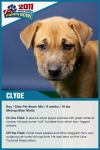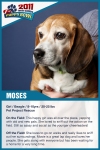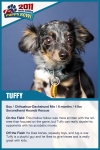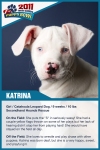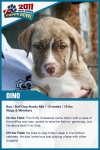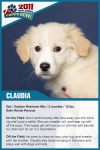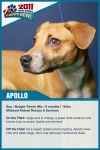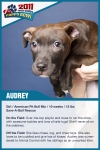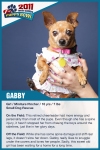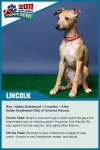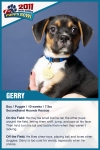On February 18, 2011, the Food and Drug Administration (FDA) issued a caution regarding the toxicity of xylitol in dogs and ferrets. Xylitol’s effect on insulin and blood glucose in cats is not clear at this time.
The FDA is cautioning consumers about the risks associated with the accidental consumption of xylitol by dogs and ferrets. Xylitol is a sugar alcohol approved for use in many common products, including sugar-free baked goods, candy, oral hygiene products, and chewing gum.
Xylitol can be found in many over-the-counter drugs such as chewable vitamins and throat lozenges and sprays. It can also be purchased in bulk bags for use in home baking. These products are intended only for human use.
FDA is aware of complaints involving dogs that experienced illness associated with the accidental consumption of xylitol. Xylitol is safe for humans but it can be harmful to dogs and ferrets.
FDA is advising consumers to always read the label on products and to not presume that a product that is safe for humans is safe for your pet.
The FDA reports included clinical signs such as a sudden drop in blood sugar (hypoglycemia), seizures and liver failure. If you suspect your pet has ingested xylitol, some signs to look for are depression, loss of coordination and vomiting. The signs of illness may occur within minutes to days of ingesting xylitol. Owners should consult their veterinarian or pet poison control center immediately for advice if they know or suspect that their pet has ingested a human product containing xylitol.
Other items that may contain Xylitol:
- Mouthwash
- Toothpaste
- Gummy Bears
- Chocolate
- Breath Mints
- Baked Goods (sugar-free)
- Chewing Gum
- Candies
- Multi-Vitamins
- Throat Lozenges
- Throat Sprays
- Sweeteners
- Moisturizing Nasal Wash
- Baking Powder
- Food-storage Containers
- Jams & Jellies
- "Diabetic" candies & foods
- Many "diet" products
- Products that are "artificially sweetened"
If you doggies or ferrets get their paws on any of the above products, call your Vet immediately ... not all dogs show signs of illness after consumption, HOWEVER, sever liver damage or death can still ensue, so evaluation by a Vet ASAP is paramount ... their life could depend on it. Depending on the amount ingested, as little as 30 minutes could be the difference between life & death.





















 Wednesday, February 23, 2011
Wednesday, February 23, 2011



